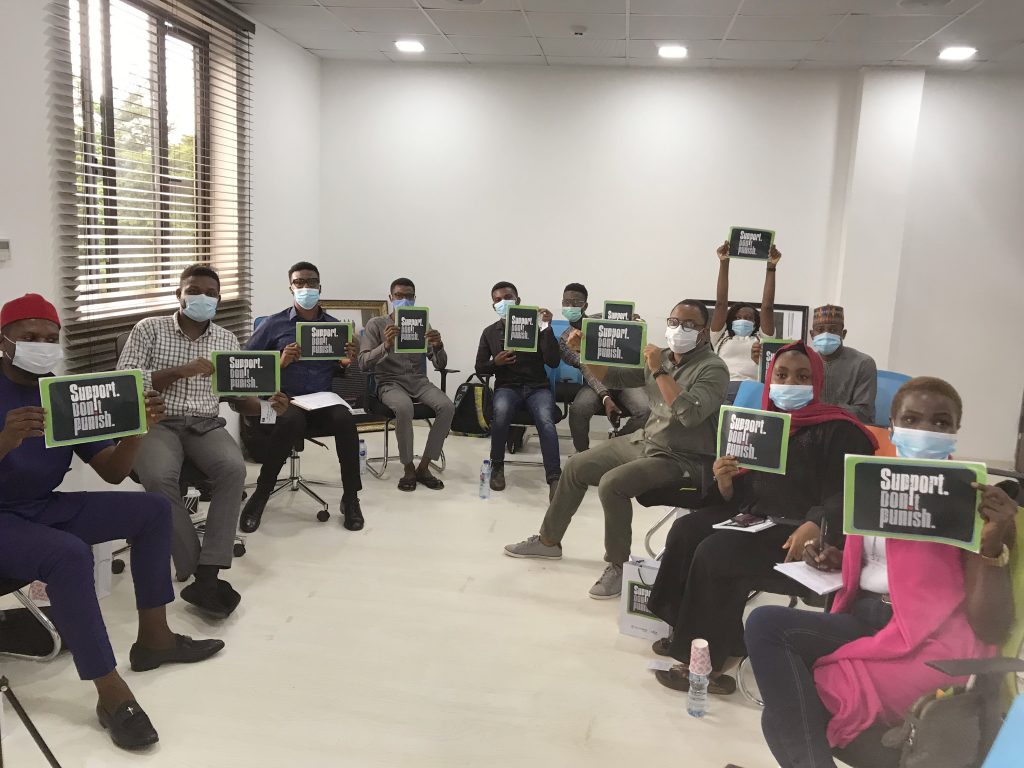This year took a different dimension that the global community did not anticipate. The COVID-19 pandemic revealed gaps in human development policies and further exposed age-long challenges faced by People Who Use Drugs, and other Inadequately Served Populations. Nonetheless, this year has revealed laudable community resilience in responding to the challenges posed by the pandemic. There are also some remarkable milestones recorded in the drug policy space.
To conclude the year, we highlight some significant local and international developments, in promoting and sustaining evidence-based drug policy.
Ghana’s Narcotics Control Commission Bill Passed into Law: A Step-towards Balanced Drug Policy Approach
Ghana has been on the journey to reforming its drug law since 2015. In March this year, the Parliament of Ghana finally passed the Narcotics Control Commission Bill into law. This law particularly acknowledges drug use as a public health challenge, thus stipulating alternative to incarceration for personal drug use. In addition, the law promotes provision of harm reduction services to people who use drugs.
Another critical aspect of the law is the approach to cannabis through alternative development. The new law makes provision for regulating the manufacturing of cannabis products whose components do not exceed about 0.3% tetrahydrocannabinol (THC). There is no doubt that this development is exemplary for drug policy reform in West Africa and it sets a good precedent.
Harm Reduction in Nigeria. The Progress…
Since the epoch-making step, on the implementation of comprehensive harm reduction in Nigeria in 2019, there have been progress with the pilot Needle Syringe Program and establishment of structures towards an upscale of harm reduction in-country. Capacity building of state actors, and Community Based Organizations have been carried out on the implementation of Needle Syringe Program (NSP), and overdose Management through Naloxone. While the pilot NSP has commenced, advocacy efforts have also followed in line, through sensitization of law enforcement agents, media practitioners, religious leaders, health workers, and community leaders on evidence-based drug policy, and harm reduction. People who Use Drugs at the community level are also being sensitized on safer drug use and overdose prevention.
We anticipate the scale-up of harm reduction in-country come 2021, as we sustain advocacy efforts geared towards drug policy reform in Nigeria.
WHO’s recommendation to the UN Commission on Narcotic Drugs
In January 2019, WHO submitted eight recommendations to the UN Commission on Narcotic Drugs (CND), after an in-depth review on Cannabis and related substances. One of the recommendations concerning the recognition of Cannabis’ medicinal and therapeutic value attracted keen interest among drug policy reform advocates. For the longest of time, Cannabis has been relegated to schedules of the Single Convention on Narcotic Drugs of 1961, which have been far reaching determinants of cannabis control measures. The recommendations focused largely on the change in scope of cannabis control.
The Long Wait…United Nations CND Reclassification of Cannabis
For 59 years, cannabis had been subjected to strict international control measures which restricted its exploration for medical or industrial purposes. After consideration of the recommendations by the WHO on cannabis rescheduling, on 2nd December 2020, member states of the Commission on Narcotic Drugs voted for the removal of cannabis and Cannabis resin e from Schedule IV of the Single Convention on Narcotic Drugs of 1961 as amended in the 1972 Protocol), which hitherto considered Cannabis to be too dangerous to have any therapeutic usefulness This action was taken with keen interest to the use of cannabis for medical purposes, and expansion of cannabis research. The vote was reached by 27 countries while 25 others voted ‘No’ and 1 Abstained.
This is a big win for the Cannabis reform and a positive step in prioritising evidence in global drug control.
Global State of Harm Reduction Report
Harm Reduction International once again provided a critical analysis of the implementation of harm reduction around the world through its biennial report. The report gives a clear picture on how well or poorly countries are doing concerning the implementation of comprehensive harm reduction. This edition also points out the impact of COVID-19 on harm reduction service delivery worldwide. Read full report here
A Roadmap to 2030- The 2021-2025 UNAIDS Strategy
The development of the 2021-2025 UNAIDS strategy serves a roadmap for the world to end AIDS by 2030 with new targets and means of utilizing resources to meet these targets. In this new strategy, social enablers are critical in driving policy actions to meet the 2025 targets in order achieve the goal of ending HIV as a global pandemic by 2030. The strategy is driven through the Sustainable Development Goals, which implies inclusive response strategy for key populations. This strategy emphasises the need for integration of HIV services, while also providing measures for upscale of harm reduction services in vulnerable communities. This is a road map for states to take ownership of HIV/AIDS policy responses, and also a guide for the to inform priority areas for donors and governments.
A Win for Cannabis Reform – USA House of Representative Passes Vote to Decriminalize Cannabis
Two days after voting in favour of cannabis rescheduling at the Commission on Narcotic Drugs, the United States of America House of Representative voted the MORE Act (Marijuana Opportunity Reinvestment and Expungement Act). The provisions of this act, seeks to remove cannabis from the Federal Controlled Substances, thus decriminalizing it.. In addition, the MORE Act gives expansion to cannabis industry, giving ownership, and enabling expert research to avail funding opportunities that enable a balanced approach. More so, this Act is a big win for communities that have been disproportionately affected by the dictates of the ‘war on drugs’, as it has facilitated policies that promote systemic racism, as it gives a beacon of hope for ‘restorative justice’ for many affected.
There is no doubt that in the face of this year’s challenges, we have experience some wins in drug policy reform there is alot more to do in the year 2021!
Stay on course! Happy New Year.…

